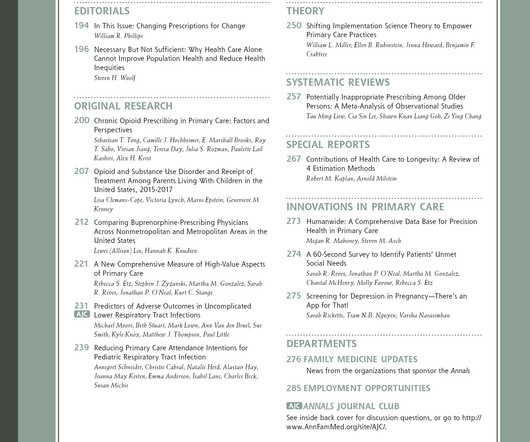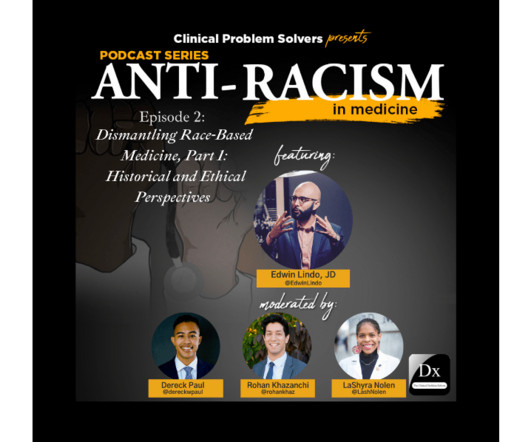Building Capacity to Address Opioid Use Disorder: Results from an embedded education program in health profession curricula [Behavioral, psychosocial, and mental illness]
Annals of Family Medicine
NOVEMBER 20, 2024
Outcome Measures: Improved knowledge, skills and attitudes about persons with OUD and treatment, plans to provide treatment post-graduation, and for the training to be embedded into school’s curricula.













Let's personalize your content